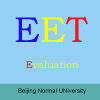-
Performance based assessment
普通类 -
- 支持
- 批判
- 提问
- 解释
- 补充
- 删除
-
-
Performance based assessment
STANDARDIZED TESTS, the cornerstone of public school assessment, while inexpensive, efficient to administer, and easy to report, none the less give an incomplete picture of student achievement. While effective at measuring content knowledge, standardized tests do not measure students' skills or ability to perform higher level thinking. Performance based assessment, on the other hand, can give us a more complete picture of student achievement.-
What is performance based assessment?
Performance based assessments ask students to show what they can do given an authentic task which is then judged using a specific set of criteria.-
Where can performance based assessment be used?
Tasks that can be evaluated using performance based assessment.
Performance based assessment provides teachers with information about how a student understands and applies knowledge. They can be used to evaluate reasoning, products, and skills that can be observed and judged using specific criteria.
Tasks that have more than one acceptable solution often lend themselves well to a performance based assessment, since they may call for the student to use higher-order thinking skills such as experimenting, analyzing or reasoning.
Examples of learning that can be measured well using a performance based assessment include: giving an oral presentation; writing a research paper; operating a piece of equipment; and creating and conducting a science experiment (see a definition of performance assessment).-
How do you measure student performance?
Student performance tasks are measured using performance criteria. Creating performance criteria serves two purposes. First, it defines for the student and the teacher what the expectations of the task are. Second, well-defined criteria allow the teacher and student to evaluate the task as objectively as possible.
If performance criteria are well defined, another person acting alone would be able to evaluate the student accurately and easily. In addition, well-written performance criteria allow the teacher to be consistent in scoring over time which is especially good when evaluating skills (Stiggins, 1997).-
How can you document student performance?
Student performance can be documented in four ways:
Rubric – A rubric is a rating scale that shows to what degree a criterion is met. Most rubrics use a four or five degree scale that would allow the teacher to evaluate a performance criteria from "not present" to “exemplary"
Checklist - A checklist is a simpler version of a rubric and usually documents only whether or not certain criteria were met during the task.
Narrative - A narrative is a written record that explains exactly how well a student has met the performance criteria.
Memory - Using no mechanical means the teacher observes the student performing the task. This mental information is then used to determine whether or not the student was successful meeting the performance criteria.-
What are the strengths and weaknesses of each reporting method?
Strength Weakness
Rubric Records assessment and rationale with one rating. Can be difficult to create.
Checklist Fast and efficient. Useful for large numbers of criteria. Results can lack depth.
Narrative Provides the most complete picture of achievement. Time consuming to write.
Memory Quick and easy. Difficult to remember accurately especially over time.-
Where can I learn more about performance based assessment?
Assessment Based on a Vision of Learning - This article from the North Central Regional Education Laboratory gives a good framework for the impetus for performance based assessment.
Grant Wiggins on Assessment - Online archieve of interviews with one of America's leading experts on performance based assessment.-
Author
Gary Coyle
Graduate Student
SDSU Educational Technology
Coyle, G. (2005). Performance based assessment. In B. Hoffman (Ed.), Encyclopedia of Educational Technology. -
-
- 标签:
- based
- assessment
- performance
- student
- criteria
- criteria.
-
加入的知识群:



学习元评论 (0条)
聪明如你,不妨在这 发表你的看法与心得 ~